- Category
- Anti-Fake
How Russian Propaganda Slips into Prestigious Festivals, Pushing Kremlin Narratives Even Now
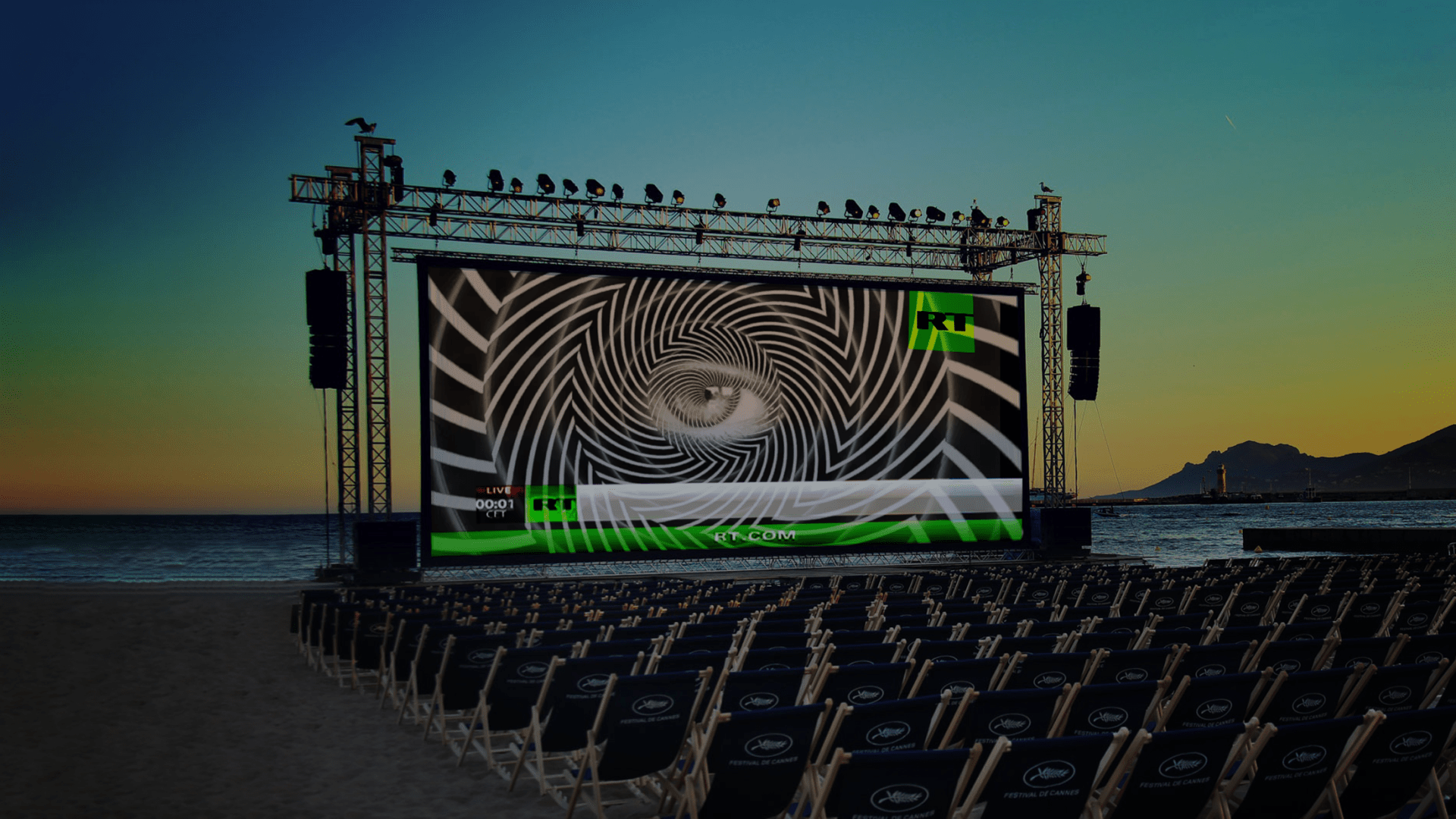
Beyond the battlefield, Russia is waging a sophisticated information war, weaponizing culture to fracture international unity and push its narrative.
“They worked out that our openness is also our great Achilles’ heel,” said Peter Pomerantsev, a Soviet-born UK journalist and expert on Russian propaganda, back in 2015. “The [West’s] openness of media meant that you could seed disinformation very brazenly into these societies and start trouble inside of them.” Pomerantsev stresses that Russian propaganda isn’t just about promoting Russia—it’s a calculated strategy of a broader “information war,” meticulously designed to “divide and conquer” by disseminating conspiracies and misinformation.
Even now, despite waging its full-scale war in Ukraine and sweeping sanctions, Kremlin narratives continue to infiltrate global platforms.
Whitewashing Russia's crimes
A recent example is Anastasia Trofimova’s Russians at War, a controversial documentary funded by a $340,000 Canadian grant and screened at prestigious film festivals like the Venice Film Festival and Toronto International Film Festival. Viewers raised alarms over its portrayal of Russian soldiers and noted Trofimova's ties to Russian state-run RT (formerly "Russia Today").
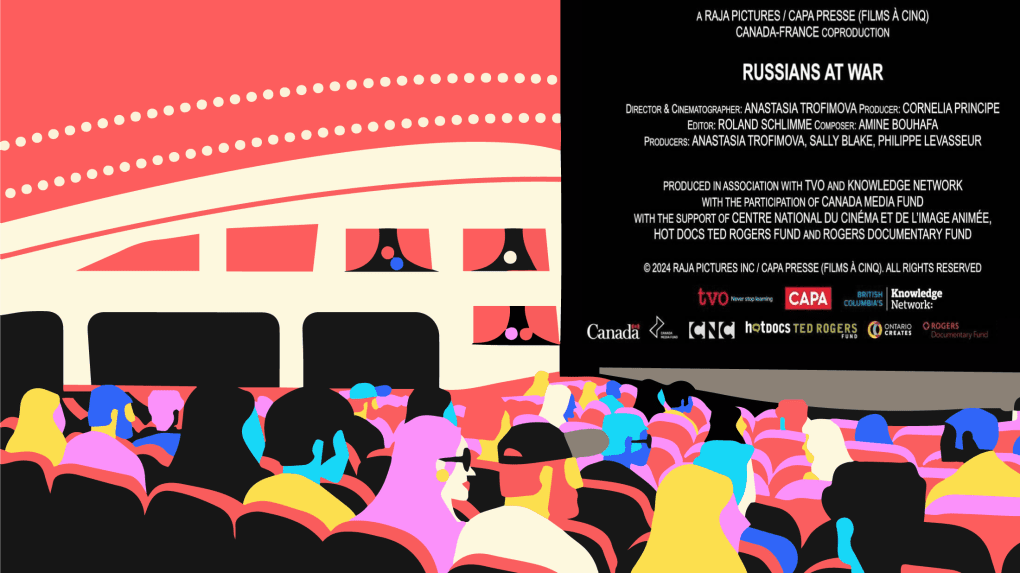
“Russians at War interprets a propaganda narrative in which the Russian military is humanized, and this sympathy is directed at the poor conditions of their service and nothing else,” said the Ukrainian film critic Sonya Vseliubska. “Since the festival's programmers used to let 'good' Russian works in, at some point, the boundaries of what was allowed started to blur, and now we see a film in the Venice program from a person who supports entirely pro-Russian narratives.”
Despite extensive documentation by independent agents and the Ukrainian Prosecutor General's Office, the film omits Russian soldiers' “widespread violations of international human rights and humanitarian law,” reported by UN High Commissioner for Human Rights, Volker Türk.
Trofimova claims she witnessed no war crimes during her seven months embedded with a Russian battalion, doing so without authorization and in violation of Ukrainian law and undermining independent reports from organizations like the International Criminal Court and Europol.
Historian and analyst of Russian culture, Ian Garner, notes that in the film, “Russia’s war criminals are transformed from agents into instruments of history,” absolving them of moral responsibility, reiterating the “just following orders” defense once used to justify the actions of German soldiers during the Holocaust.
Then how did a film from a director linked to a Russian propaganda channel land at prominent Film Festivals like Venice? Trofimova marketed it as an “anti-war” project, a label echoed by Venice’s artistic director, Alberto Barbera, who praised this “anti-war film, with a very sensible and touching human approach.”
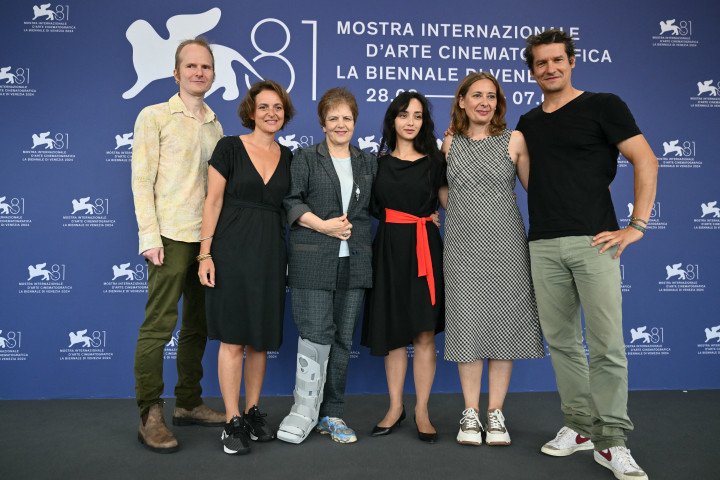
This is not the first instance where a questionable Russian narrative if not outright propaganda, has slipped into major festivals.
In 2018, Phone Duty, a short film by the British-Russian filmmaker Lenar Kamalov, about a pro-Russian soldier answering calls from fallen Ukrainian soldiers’ phones, won an award at the Tribeca Film Festival in New York.
“This film shows us the emotional weight inanimate objects can have, and the humanized war in a surprising and impactful way,” the jury said. “The award for Best Narrative Short goes to Phone Duty.”
But what exactly is the “humanized” war here? The soldier delivers scripted propaganda to grieving families, even falsely claiming, “We know that the Ukrainian military covers up their casualties and often simply buries their dead soldiers.” This statement, unverified by any international organization, is a blatant attempt to spread misinformation. The film blurs the lines between aggressor and defender, presenting both sides as equally culpable.
The lead actor, Zakhar Prilepin, a Russian ex-politician and combatant, arrived on set straight from the battlefield, still clad in the uniform he wore while fighting against Ukrainian forces. In his interviews, he continuously stated that "all of Ukraine should become part of Russia," and that “the most people died where my battalion was stationed”.
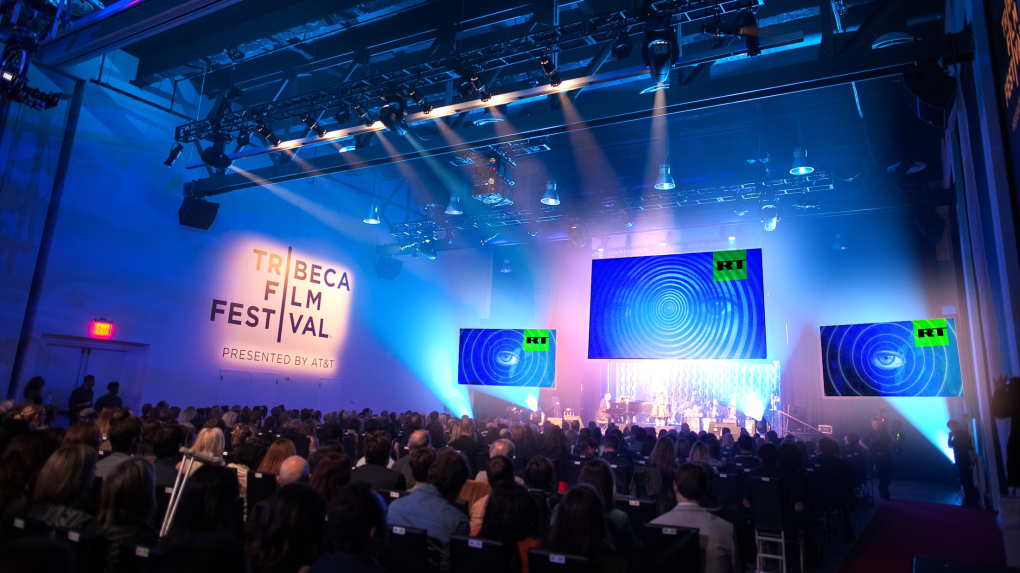
How could Phone Duty win an award at Tribeca? "The inclusion of 'Phone Duty' in the Tribeca Film Festival, despite its seeming incongruity with the stated theme of 'focus on compassion and humanity as vital tools in coping with gun violence,' can be attributed to several possible factors. The film might have been judged on its technical merits. However, given the protagonist's background and the film's underlying message, it seems more likely that the film's inclusion was either a misjudgment or a deliberate attempt to spark controversy. Its avilability on cinephile platforms further legitimizes a film that fails to align with the principles of humanity or compassion.
Another Russian figure, Eduard Limonov, infamous for saying, “We need to hurry up and take everything we can before Ukraine joins NATO,” took center stage in 2024 when the Cannes Film Festival showcased a biopic about him, directed by Kirill Serebrennikov. Despite Limonov being an ultranationalist who played a significant role in shaping modern Russian neo-nationalist ideology—which fueled Russia’s aggressive wars, from Chechnya to Ukraine—the film portrayed him in a glamorous light as a poet and rebel, glossing over his support of Serbian forces and convicted war criminal Radovan Karadžić during the Yugoslav Wars, firing a machine gun toward Sarajevo. When questioned about this depiction, Serebrennikov responded, “It’s unbearable to make a movie about a man who shoots at people. I just don’t want to know about that part of his life.”
How Serebrennikov’s film managed to end up at Cannes is still surprising. His established dissident reputation and prior relationship with the festival seems to have granted him credibility, allowing the film to take center stage, ignoring the "rock star" portrayal of an ultranationalist Russian leader.
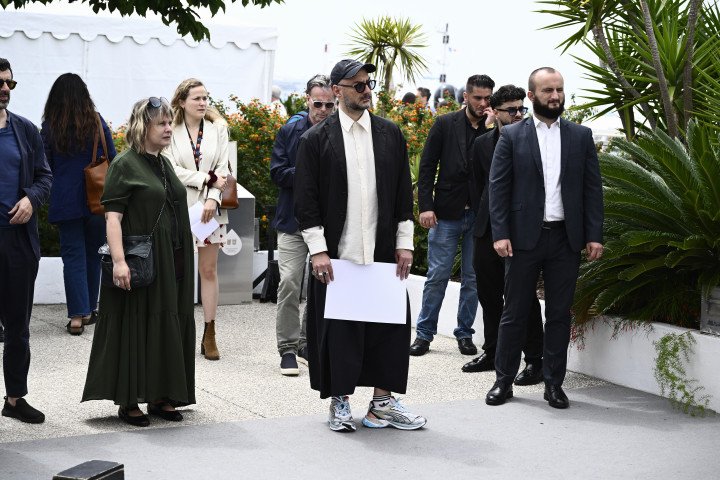
The illusion of Russian cultural neutrality
Polish-American Slavist, Ewa M. Thompson, explains how Russian cultural figures, even those seen as dissidents or oppositional, often fail to fully engage in the decolonization of Russian culture, reinforcing imperial attitudes.
“Russian culture, both in Russia and abroad—I would even say primarily abroad—has established an image that justifies the aggressive actions that the Russian Empire has been taking for centuries,” said Professor Thompson. “Many works of famous Russian literature have a ‘little man’ as their protagonist. This figure is completely helpless and incapable of anything. However, if you look at the histories of different countries, you can see that liberty and freedom have only been achieved through the sacrifices of average people who, instead of sitting and weeping, went to fight for freedom.”
Pomerancev agrees with Professor Thomson, saying: “Putin’s propaganda constructs a worldview where individuals are stripped of responsibility and freedom, needing an authoritarian leader to navigate a world dominated by vast conspiracies and confusion. Succumbing to this narrative means relinquishing responsibility and agency, aligning with Putin’s propaganda model.” Dismissing the colonial undertones in Russian cultural products while focusing on its artistic contributions allows Russian imperial narratives to persist unchecked in global discourse.
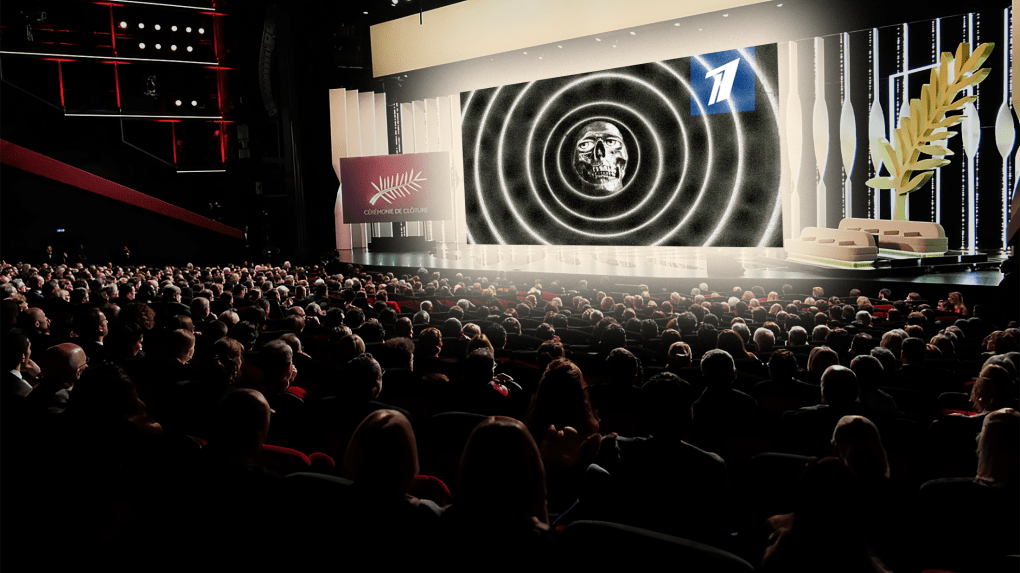
For the first two years of the full-scale invasion of Ukraine, the very notion of showcasing works from the perspective of Russian soldiers was unthinkable to many in the West. Yet, as the war has dragged on, a subtle shift has become apparent: a growing weariness, a creeping sense of fatigue that has opened a window of opportunity for Russian propaganda.
"Europe and the rest of the world has allegedly got tired,” said President Volodymyr Zelenskyy in his address at the Venice Film Festival back in 2022. “This is what Russia says. This is what Russia wants. This is what Russia is trying to achieve."
While allies such as Canada and Italy continue to financially support Ukraine, their cultural institutions have, in some instances, offered platforms to voices that echo Russian propaganda. This is not merely a matter of oversight or ignorance; it is a reflection of a broader cultural and political trend. The nuances have become increasingly blurred as the war has become a distant, daily news event. In this climate, Russian propaganda, with its seductive blend of nostalgia, victimhood, and imperial grandeur, has found fertile ground.
-009539450c8c5f5121e4f9d564099b68.jpg)
-3db1bc74567c5c9e68bb9e41adba3ca6.png)



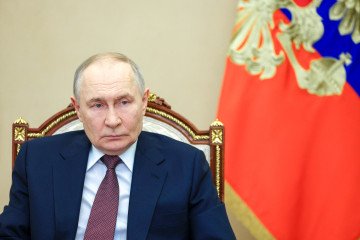
-f88628fa403b11af0b72ec7b062ce954.jpeg)